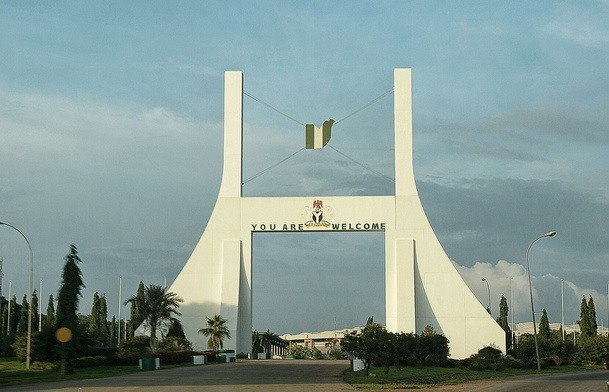Abuja: A dream came true
Not quite long, I read a social media comment on a picture of the Transcorp Hilton Hotel in 1987, when it was newly constructed, surrounded only by wild trees and vegetation in all directions. It was then referred to as Nicon Noga Hilton Hotel. The comment reads. “Only God knows what was going on in […]

Not quite long, I read a social media comment on a picture of the Transcorp Hilton Hotel in 1987, when it was newly constructed, surrounded only by wild trees and vegetation in all directions. It was then referred to as Nicon Noga Hilton Hotel. The comment reads. “Only God knows what was going on in the minds of those who decided to embark on the project at that time. Even the labourers, they would have said, idiots! Building this edifice in this bush, who will come here?”
Nigeria is gifted with immense population as a huge market, vast land and enormous natural resources. It is only persons who underrated the greatness of the country that would have doubted the accomplishment of the mission of the founding fathers, for the establishment of the new Federal Capital City in any part, most especially as is located in its geographical center.
The first bulldozer that pulled down the first tree to herald the commencement of physical construction in Abuja was in 1982. That was for the construction of the erstwhile Festival Road, now renamed Mashood Abiola Road. In the same year, 1st October, 1982, the first National Independent Anniversary Celebration in Abuja was conducted by the Shagari Administration at the Old Parade Ground in Garki District, which had then been completed. As a symbol of National unity, it was attended by all the Presidential Candidates of the five Political Parties that contested in the Second Republic, 1979 General Election. They were, Alhaji Shehu Shagari, the then President, Chief Obafemi Awolowo, Chief Nnamdi Azikiwe, Alhaji Aminu Kano and Alhaji Waziri Ibrahim, all of them now, of blessed memory.
Just one year later in 1983, we undertook an excursion visit to Abuja from my secondary School, Government Science College Izom. At the end of the excursion, as the then Press Club Editor of the College, I wrote an article title “Abuja as I saw it”.
What I captured in the article were, the present Nicon Luxury Hotel, which was then referred to as the Sheraton Hotel, the present Sheraton Hotel then referred to as the Hyatt Regency Hotel, the first constructed block of the Abuja International Conference Center and the erstwhile Presidential Complex, which now houses the Office of the Secretary of the Federation. All these edifices were under construction in 1983, with the super structures already completed within only one year from the commencement of physical construction on the Federal Capital City site.
Worthy of note was that, the construction of the Transcorp Hilton Hotel that later outshined the others had not begun. The comment made on its developers as being ‘idiots’ for building in a bush in 1987, would have been stronger for these earlier ones in 1983.
In 12th December 1991, only 9 years after the commencement of the physical development of the city, the Seat of Government of Nigeria was transferred to the new Capital. In the following year the second wing of the Abuja International Conference Center was built in a record of just 6 months, and Abuja hosted the Heads of African Governments for the OAU Summit of 1992, only 10 years after the commencement of the City’s physical development.
In comparison to other countries, this feat was exceptional. Two of our sister African countries made declarations for the transfer of their capital cities, one of them even earlier than that of Nigeria, till date no remarkable achievement similar to that of Nigeria, despite the fact that theirs were existing old cities while Nigeria’s was from a completely virgin land.
Tanzania made the declaration for transfer of its capital from Dar-es-Salaam to Dodoma, a more central region, after a nationwide Party referendum in 1974, barely 2 years before the 1976 declaration for Abuja. While Cote d’voire from Abidjan to Yamoussoukro, in March 1983, which was 7 years after the Abuja declaration.
Tanzania’s reason for movement to Dodoma was basically the same for Nigeria’s to Abuja. It was envisaged that the movement to Dodoma will take 10 years. While Dodoma’s Population target was to be only 1.3 million by the year 2020, Abuja’s ultimate population target was 3.1 million within 25 years from 1982.
Meanwhile, the initial design of Dodoma never came to fruition over the past 40 years. Government offices and embassies have resisted movement to Dodoma. As a result many government offices remain in Dar es Salaam. The same cannot be said for Abuja where Mission and Vision were accomplished, and the dream came true.
